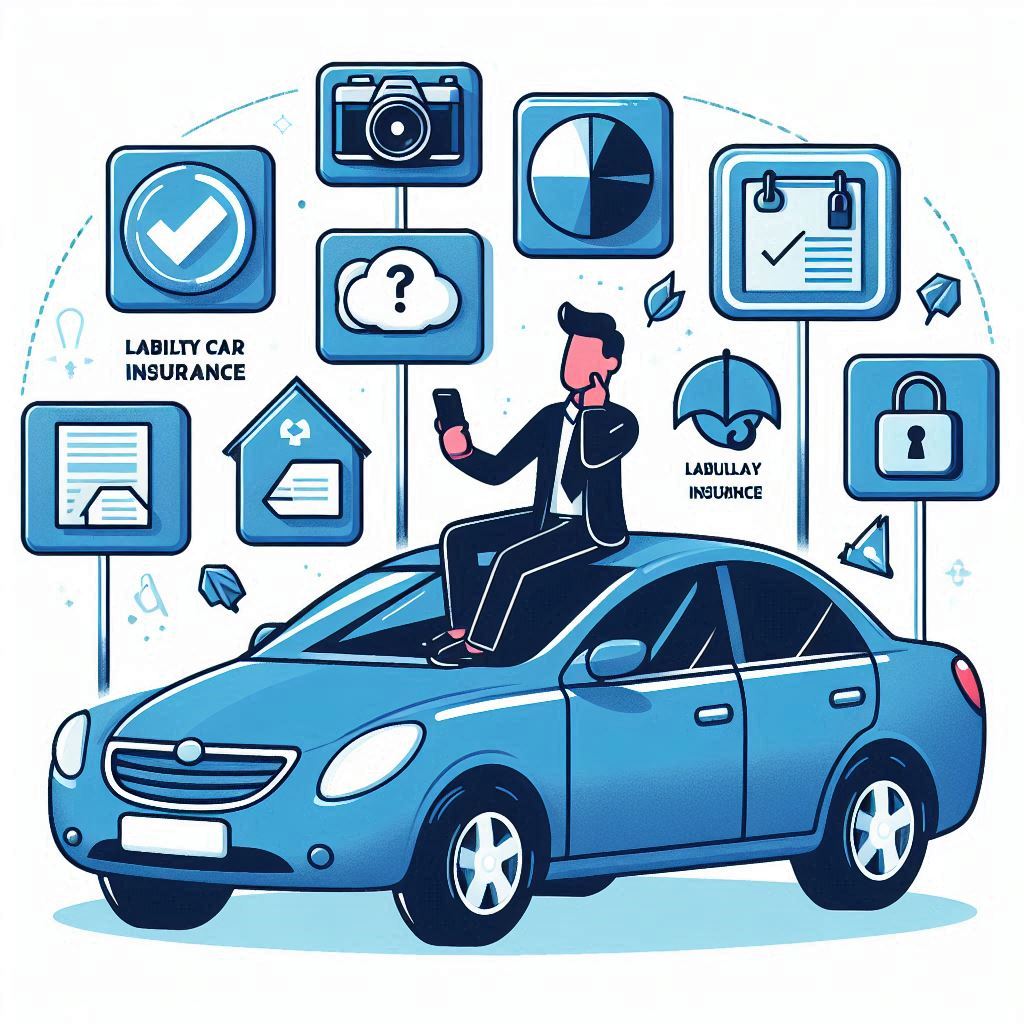What is Liability Car Insurance?
Liability car insurance is a fundamental type of auto insurance designed to cover costs associated with damages or injuries you cause to others in an accident. It ensures financial protection for the policyholder while addressing the needs of those affected. Unlike full coverage, liability insurance does not pay for your own vehicle repairs or injuries. Instead, it focuses solely on covering third-party claims, such as medical expenses or property damage.
Think of it as a safety net, not just for you but for anyone who might be hurt or have their property damaged due to your actions.
Why is Liability Car Insurance Mandatory?

Liability car insurance is mandatory in most jurisdictions worldwide because it protects all parties on the road. Imagine if someone hit your car and didn’t have insurance—how would you recover your losses? By mandating liability insurance, governments aim to ensure that victims of traffic accidents are compensated, even when the at-fault driver lacks the means to pay out-of-pocket.
Additionally, having liability insurance shows financial responsibility, making roads safer for everyone.
Key Components of Liability Car Insurance
Bodily Injury Liability
Bodily injury liability covers medical costs, lost wages, and legal fees if you’re responsible for injuring someone in an accident. For instance, if a pedestrian is hit or another driver suffers injuries due to your actions, this part of your policy kicks in to help cover their expenses. It’s a crucial element, ensuring that victims receive proper compensation without lengthy legal battles.
Property Damage Liability
This portion handles repair or replacement costs for physical damage caused by your vehicle. It includes everything from damaged fences to other cars. For example, if you accidentally crash into someone’s parked vehicle or drive into a storefront, property damage liability will cover these costs up to your policy limit.
Benefits of Liability Car Insurance

Financial Protection Against Lawsuits
Accidents can escalate quickly, especially when legal actions are involved. Liability insurance helps reduce the financial strain of lawsuits, covering attorney fees and settlements. Without this coverage, even minor accidents could lead to devastating financial consequences.
Peace of Mind for Drivers
Knowing you’re protected allows you to focus on driving safely. Life’s unpredictable, but with liability insurance, you’re prepared for the unexpected.
How Liability Insurance Works
Filing a Claim
The claim process is straightforward but requires timely action. First, report the accident to your insurer. Provide accurate details and cooperate with the adjusters. Your insurer will handle negotiations with the other party, ensuring a smooth settlement process.
Determining Fault in an Accident
Fault plays a major role in liability claims. Insurance companies use investigations, witness statements, and accident reports to establish who’s liable. Your policy activates only when you’re deemed at fault.
Choosing the Right Liability Insurance
Selecting the right liability car insurance involves balancing legal requirements, personal needs, and affordability. Higher limits often provide better protection, especially in severe accidents. Always compare providers and understand the terms before committing to a policy.
Liability Insurance and Other Coverage Types

How Liability Works with Collision and Comprehensive
Liability insurance is essential, but it’s not the whole picture. Collision coverage handles damages to your vehicle when you’re at fault in an accident. Comprehensive coverage, on the other hand, covers non-collision-related events such as theft, vandalism, or natural disasters. Together, these types create a more robust safety net for your car.
For example, if you rear-end another vehicle, liability insurance pays for the other driver’s damages, while collision coverage takes care of your car repairs. It’s important to assess how these types of coverage complement each other to make an informed decision.
Umbrella Insurance for Additional Protection
Umbrella insurance acts as an extra layer of security over your standard liability coverage. If you’re involved in a catastrophic accident that exceeds your policy’s limits, umbrella insurance bridges the gap, covering the remaining costs. For instance, if your liability limit is $100,000 and the damages total $200,000, umbrella insurance prevents you from bearing the excess burden.
Umbrella policies are particularly valuable for high-risk drivers or individuals with significant assets to protect.
Common Myths About Liability Car Insurance
“Liability Insurance Covers My Vehicle”
This is a common misconception. Liability insurance only covers third-party damages. Your vehicle repairs come under collision or comprehensive coverage. Understanding this distinction is crucial to avoid unexpected out-of-pocket expenses.
For example, if your car is damaged in a solo accident, liability insurance won’t cover the repair costs. Knowing what your policy entails ensures you’re not caught off guard.
“Higher Limits Are Unnecessary”
Many drivers opt for the minimum required liability limits, assuming it’s sufficient. However, in severe accidents, these minimums often fall short. Imagine being sued for medical expenses that exceed your policy limit—without higher limits, you’d be responsible for the difference.
Investing in higher limits is a smart move to safeguard your finances. While it might slightly increase premiums, the peace of mind it provides is invaluable.
Conclusion
Liability car insurance is a cornerstone of responsible driving. It ensures that damages or injuries you cause are compensated, providing financial protection for both you and those impacted by an accident. Understanding its key components, benefits, and limitations empowers you to make informed decisions.
As you navigate insurance options, remember that liability coverage is just one piece of the puzzle. Complementary policies like collision, comprehensive, and umbrella insurance offer additional layers of security. Take the time to review your coverage regularly to ensure it aligns with your needs.
FAQs
1. What does liability car insurance cover?
Liability car insurance covers third-party bodily injuries and property damages resulting from an accident you’re at fault for. It does not cover your own vehicle or medical expenses.
2. How do I determine the right amount of liability coverage?
Consider your state’s legal requirements, your financial assets, and potential risks. Higher limits provide better protection in severe accidents.
3. Is liability insurance the same as full coverage?
No, liability insurance only covers damages or injuries to others. Full coverage combines liability, collision, and comprehensive policies to protect you and your vehicle as well.
4. Can liability insurance cover rental cars?
Yes, in most cases, your liability coverage extends to rental cars, but it’s wise to confirm this with your insurance provider.
5. What happens if I don’t have liability car insurance?
Driving without liability insurance can result in legal penalties, fines, license suspension, and personal financial responsibility for any damages caused in an accident.
